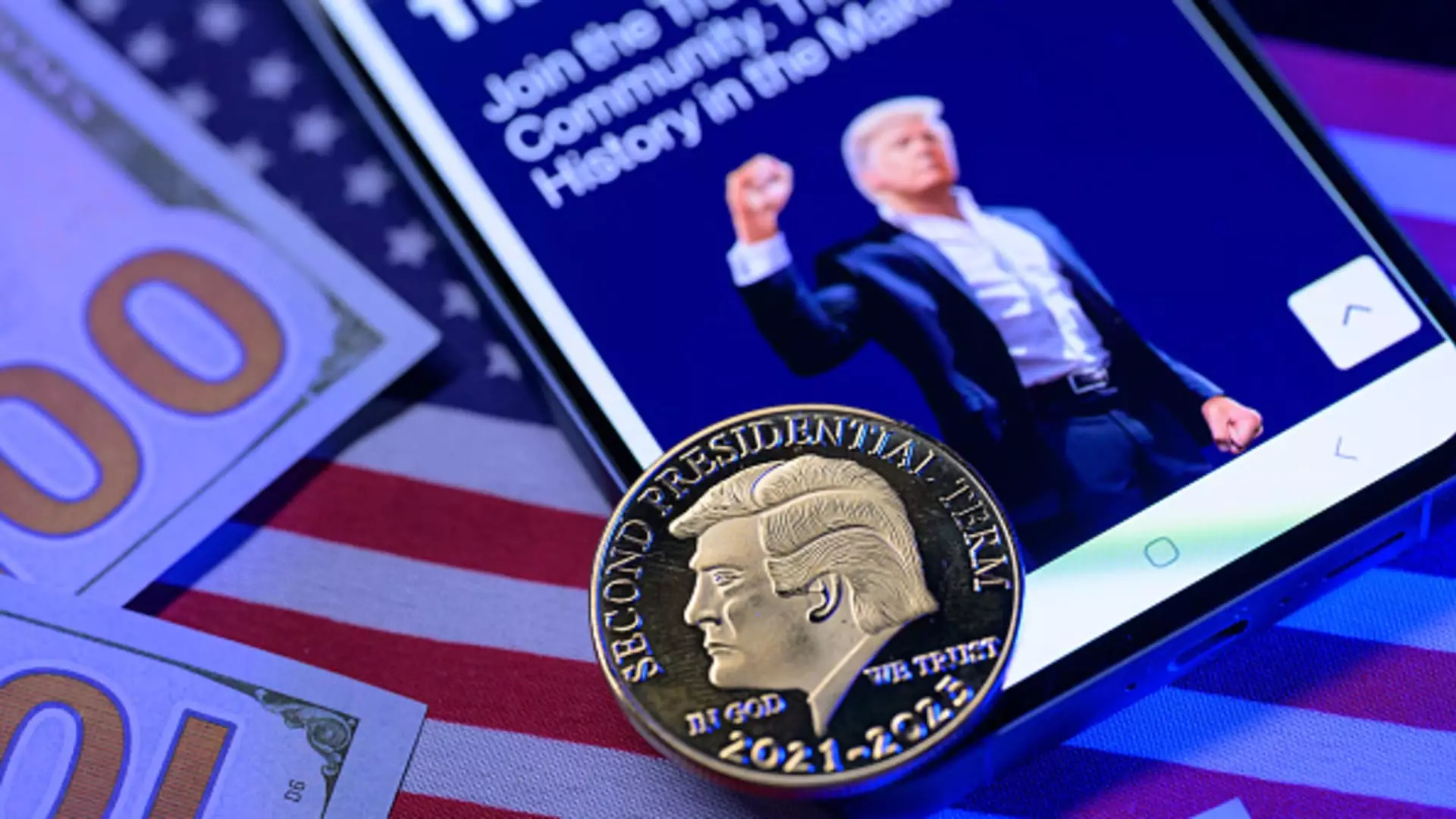As the intersection of cryptocurrency and politics continues to generate intrigue and speculation, the upcoming dinner hosted by former President Donald Trump for top $TRUMP meme coin holders on May 22 has pulled back the curtain on a complex web of identities and motivations. This event, intended for the top 220 holders of the $TRUMP token, is more than just a networking opportunity; it symbolizes a unique convergence of financial clout and political influence. What does it mean when individuals wield immense financial power while shrouded in anonymity? The implications are both unsettling and fascinating, suggesting deeper currents beneath the surface of this digital gold rush.
The presence of pseudonymous wallets raises critical questions about accountability and transparency in a trading environment often lauded for its decentralization. Unlike traditional financial institutions where identities are verified, the $TRUMP ecosystem is characterized by opacity. This situation emboldens questionable actors and invites scrutiny over their motives for purchasing large quantities of a coin so closely associated with a political figure whose decisions bear consequence on national and international scales.
Behind the Wallets: Who Holds the Power?
Recent analyses by firms like Inca Digital and Bloomberg have illuminated the makeup of the top wallets holding $TRUMP tokens, revealing that many belong to international entities rather than U.S. citizens. Out of the top 25 wallets, only a minority appears to have roots within America, a fact that raises eyebrows regarding alignment of interests and intentions in the context of American governance. The involvement of individuals like Justin Sun, a Chinese crypto entrepreneur who has already amassed $75 million worth of tokens, further complicates the narrative.
When cryptocurrency is wielded as a tool for influencing political paradigms, the stakes escalate. As these top holders sit at the President’s table, we face the peculiar reality where foreign nationals could potentially leverage their investments into direct lines of communication with influential political figures. The ethical ramifications are enormous, as it sends a clear message that the gates of political influence can be swung wide open through financial maneuvers in the digital realm.
The Rollercoaster Ride of $TRUMP Value
Investors and followers of the $TRUMP meme coin are in for an exhilarating ride, but not one without disillusionment. The initial hype surrounding its launch in January saw the token’s market cap balloon to $15 billion, spurred by the former president’s own proclamations on social media. Yet, as reports showed, such explosive growth was fleeting. Within days, a significant drop in value challenged the resilience and reliability of the meme coin fraternity.
The stark contrasts between realized profits and reported losses amplify the precariousness of speculative investments in the crypto landscape. With over 560,000 wallets generating $5.2 billion in gains, a staggering 592,000 wallets revealed losses amounting to $3.9 billion. Evidently, for every winner celebrating at Trump’s dinner, countless others are nursing wounds born from risky financial bets. Metaphorically, it presents a Darwinian struggle where only the fittest—or perhaps best-informed—will thrive.
Legislative Concerns and Future Ramifications
The involvement of significant corporate investments, including Freight Technologies’ $2 million buy-in, has ignited discussions among policymakers regarding the implications of cryptocurrency on lobbying and trade. Senator Richard Blumenthal has expressed concerns about the potential for foreign and corporate interests to gain undue influence over U.S. governance via investments tied to political figures. The dangers of a system where financial prowess translates into political access underscore the necessity for regulatory frameworks aimed at curbing such practices.
In an era where the lines between governance and commerce seem increasingly blurred, the $TRUMP token serves as an alarming case study. It offers a glimpse into the potential for crypto to be wielded as a tool for manipulation rather than meaningful engagement.
Cultural Reflection: The Meme Coin Phenomenon
The rise of the $TRUMP token represents more than just an investment opportunity; it reflects a cultural phenomenon where meme stocks and coins capture the imagination of investors across demographics. The promise of quick profits mingles with the glitzy allure of political engagement, enticing participants into a high-stakes game marked by volatility and uncertainty.
As social media becomes a battleground for ideologies and financial ambitions collide, it’s crucial to recognize the challenges facing stakeholders in this emerging world. The dinner with Trump isn’t merely a gathering but a manifest illustration of how readily the frontiers of democratic influence can be redefined by those who are willing to play by the rules of a new game, often devoid of traditional accountability measures.

